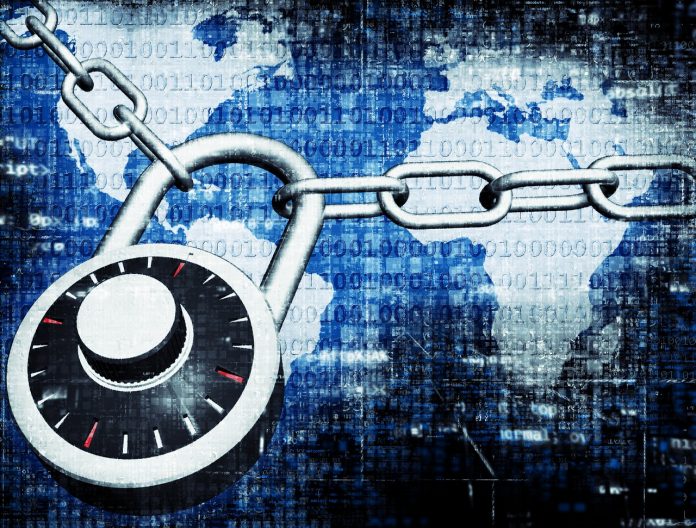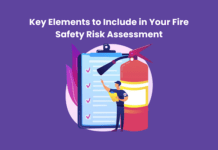People are online most of the time, for either personal reasons or their work. Online privacy is a concern as someone may be watching what you do on the internet. This handy and practical guide on how to protect your privacy online will help ensure your safety online. It has tips to help you protect yourself from hacking and other online risks.
Table of Contents
How to protect your privacy online: Practical Guidelines
When you are online, you are busy using an app or browsing and have no idea what’s happening in the background. Hackers may be trying to get into your device and steal your data. Your sensitive data may be at risk when you visit a website or use an app. When you transact online, you may face the risk of banking fraud.
There is even a possibility of someone stealing your identity. The internet is not a rosy place and risks await you at every corner. Some of the risks can have serious consequences like:
- Losing money from your bank account.
- Unauthorized transactions on your credit/debit card.
- Someone accessing your messages and chat conversations.
- Losing access to your email account.
- A virus or malware corrupting your laptop/mobile leading to data loss.
The guide on how to protect your privacy online has privacy tips and guidelines for you. Following these guidelines can help you be safe when you are online. The following are some of these guidelines.
1. Have strong access credentials
One of the key guidelines to ensure online privacy and security is to strengthen your login credentials. Create strong passwords that others can’t guess. Avoid using a name, phone number, date of birth, or any such guessable password. Remember that hackers have access to tools to help crack your password.
The password must include a mix of special characters, upper case letters, lower case letters, and numbers. Of course, it must be easy for you to remember.
Testing123@, Ilovlife@, 23Jan84, FanOfMJ are examples of poor passwords that hackers can guess easily. A password like @Mk_lH23tpXbg is a good password that is not easy to guess.
If you have many online accounts, NEVER use the same password for all accounts. Instead, use a password manager or an excel file to manage passwords. Remember one password for the password manager utility or an excel file. In this excel file or password manager, you can store all your user ids/logins and passwords.
Never write down your passwords anywhere. Don’t share your password with anyone, not even your partner/spouse. Remember that if you lose your password, you can face serious risks. Take care to have a strong password that no one can guess but one you can remember.
2. Use two-factor authentication
Most people use just a password to access their accounts. You can enhance your security by using two-factor authentication. Apart from your login password, you can add more ways of accessing your account. For instance, you can link your account to your mobile number.
When you login and enter your password, you will get an OTP (One time password) to your mobile number. You need to enter the OTP to login to your account. Such a measure offers double protection and ensures security. This ensures that a hacker who steals your password cannot get access to your account.
3. Secure Your Wi-Fi
Wireless connectivity is the standard nowadays. If you use Wi-Fi through a broadband connection, make sure you secure it. Home users tend to use simple Wi-Fi connectivity that exposes them to security risks. If your Wi-Fi connection is not secure, then hackers can get into your Wi-Fi. They can then steal your data and access your devices.
To avoid this, ensure you secure a security protocol like WPA2 to ward off hackers. Make sure the Wi-Fi password is strong, use the tips given in 1. When you have a visitor, instead of sharing your Wi-Fi password type it in yourself in the visitor’s mobile. Alternately, keep changing your Wi-Fi password once a week or fortnight.
4. Be careful when you access Public Wi-Fi
Who doesn’t like free Wi-Fi? You will naturally use free Wi-Fi for all your online activities. Public Wi-Fi may be comprised, exposing you to security risks. You should be especially careful while making online transactions using public Wi-Fi. When you use net banking or other financial transactions on public Wi-Fi, there is a risk involved.
Avoid carrying out net banking, wallet updation, and other such transactions on public Wi-Fi networks. Do it at your own home network. In case, you have to use it, make use of Virtual private network, to encrypt your data. This makes your transactions secure and safe.
5. Use a VPN
The guide on how to protect your privacy online recommends that you use a VPN or Virtual Private Network. A VPN is software that secures your internet activity by hiding your identity online. It encrypts your data and secures you from risks. This is very essential, especially if you want to access sensitive data.
The security the VPN provides ensures your data remains safe from potential hackers. When you browse online, your security provider can read your data, since it is unencrypted. This makes browsing a risk.
A VPN creates a private network virtually. This secures your data and encrypts it. Anyone who tries to access your data will see encrypted data, which is not so easy to crack. Another benefit of VPN is that it allows you to access websites that are blocked.
Offices block access to certain websites like sports websites, streaming websites, etc. Some online video streaming services maybe blocked in your country. Using a VPN helps you gain access to all this. At the same time, it protects you and hides your IP address from the world.
You must note that not all VPNs are the same. There are free VPN tools available. Using them can be risky. You should ideally look at good quality VPNs offered by reputed online companies, even if it involves spending money. Most anti-viruses offer a VPN service, which offers security and freedom from malware/viruses.
6. Use Private or Incognito Browsing
One of the ways to secure your browsing is to use incognito or private browsing. This option offered by most browsers allows you to hide your browsing history. What you do online will remain private in this mode of browsing.
Once you finish browsing, Cookies and temporary files you use while browsing are not saved and will be removed. However, you should know that you are not completely secure when you use this mode. Your internet service provider can still find out what you are up to.
7. Switch to a Private Search Engine
A search engine like Google keeps track of everything you do online. They send this to advertisers who bombard you with ads related to your online searches. If you don’t like this, you can consider changing your search engine.
There are private search engines that do not save your search results. These sites claim that they do not track your IP address. Your search engine experience will remain private. SwissCows, Searx, Qwant, and DuckDuckGo are popular private search engines you can try.
8. Protect yourself on social media
The guide on how to protect your privacy online suggests that you protect yourself on social media. Most people spend a lot of time online on social media sites like Facebook, Instagram, Twitter, and Snapchat. You may regularly share stuff on these sites with friends.
The problem is people share just about anything. They share their location, their activities, their photos, and many such stuff. Once you share something on social media, anyone can access it. This can be a potential risk for you online. It is also a risk as stalkers can keep track of every move of yours.
If you want to know how to protect your privacy on social media, one of the first things to do is keep your account private. What this means is, you must be careful to whom you allow access to your social media data. You can restrict access only to your friends online.
Check out the privacy settings on social media sites. They allow you to restrict access to your information and photos to only your friends. A site like Twitter allows you to protect your account to prevent anyone from seeing its contents unless approved by you.
On social media, you need to watch out for identity theft. Someone may use a friend’s photo and impersonate that person. You may approve that person as a friend. He will then have complete access to all that you post on social media.
There are different kinds of risks on social media. You need to be careful as your data may leak on social media. When you share so much information, there is a possibility of someone guessing your password. This may lead to a situation where you lose control of your social media account.
A scary scenario is where someone locks you out of your social media account and starts posting stuff from your account. Your friends will assume you are posting it and may reply to it. To avoid these risks, use two-factor authentication and set a complex password.
9. Don’t store private data online
The guide on how to protect your privacy online recommends that you avoid storing private data online. People store their files, music, and other stuff on Google Drive, Dropbox, and other such storage applications.
While it is fine to store such data online, you must be careful while storing your private data. Personal data, passwords, bank account details should never be stored online. This exposes you to risks. If someone hacks into your online storage, then you can lose everything. In case, you do store such data use a password on all such files.
10. Be careful while using messaging and chat apps
Messaging apps are popular as they allow people to chat with each other one-to-one and in groups. The problem is most such apps do not have end-to-end encryption. What this means is encryption is at the app level. The decrypted data is on the server of the app.
This poses a risk. If someone gains access to the messaging app server, then your messages and chats can become public. The solution is to use end-to-end encryption. Here, encryption happens at both the sender and receiver’s end. Even the messaging app cannot see your messages.
This is the highest level of security. Whatsapp, LINE, Viber, and Telegram offer end-to-end encryption. This ensures that no one reads your messages or chats. It remains encrypted unless someone gains access to your device.
In case, you use Facebook Messenger for chat, you can use the private or secret chat option to be more secure. This ensures better privacy than the regular mode.
11. Be careful using apps
People download any app that looks good. Some of these apps can be harmful. They may gain access to your device. For instance, when you grant permission to a mobile app, it may read your messages and files on your device.
If you have information related to your bank account on your mobile, an app may gain access to it. This is a major risk and exposes you to online banking fraud. Our guide on how to protect your privacy online recommends you to be very careful while allowing apps permission to access your data.
Use only apps from reputed sources. Never download apps from websites. Always download them from the app store or play store to ensure you don’t face problems. If you use your mobile for most of your online activities, be very careful while using apps.
12. Secure your computer and mobile
You must secure your computer and mobile with security software. Install software that has anti-virus, anti-malware, and anti-spyware features. This ensures you are completely safe and protected online. Don’t hesitate to spend money on reputed software.
If you follow the guidelines in our guide on how to protect your privacy online, your privacy is secure. It ensures you are safe online.












